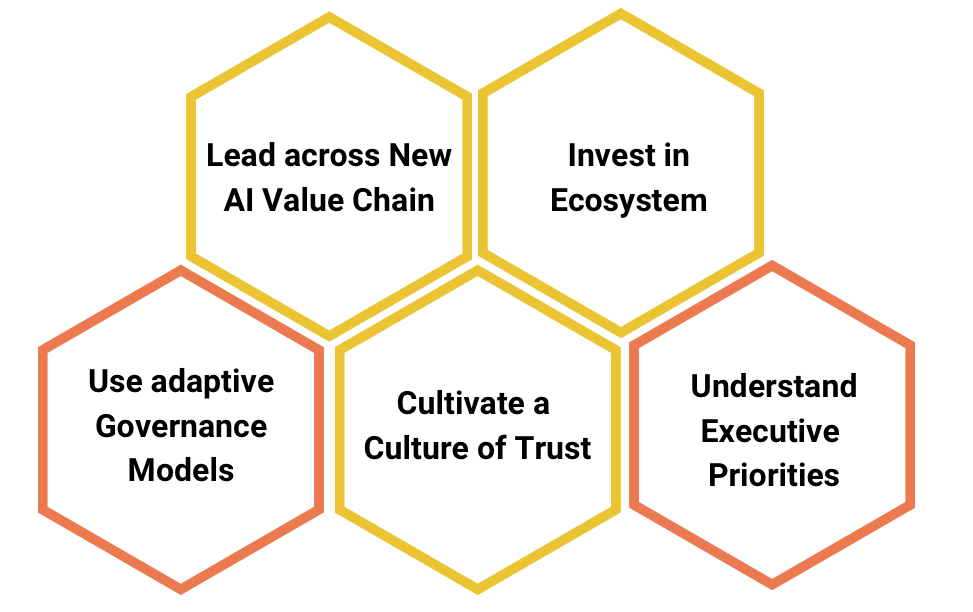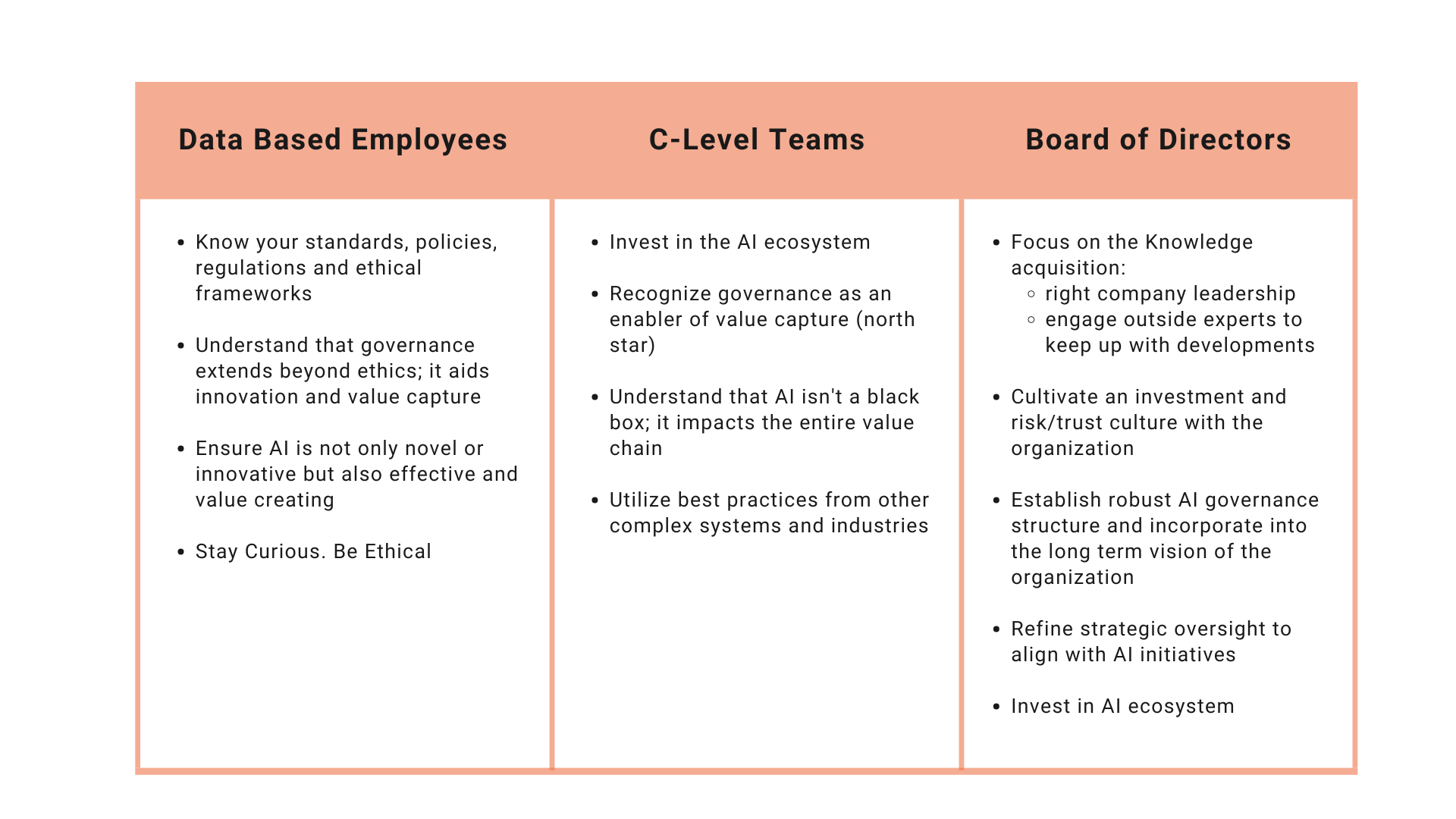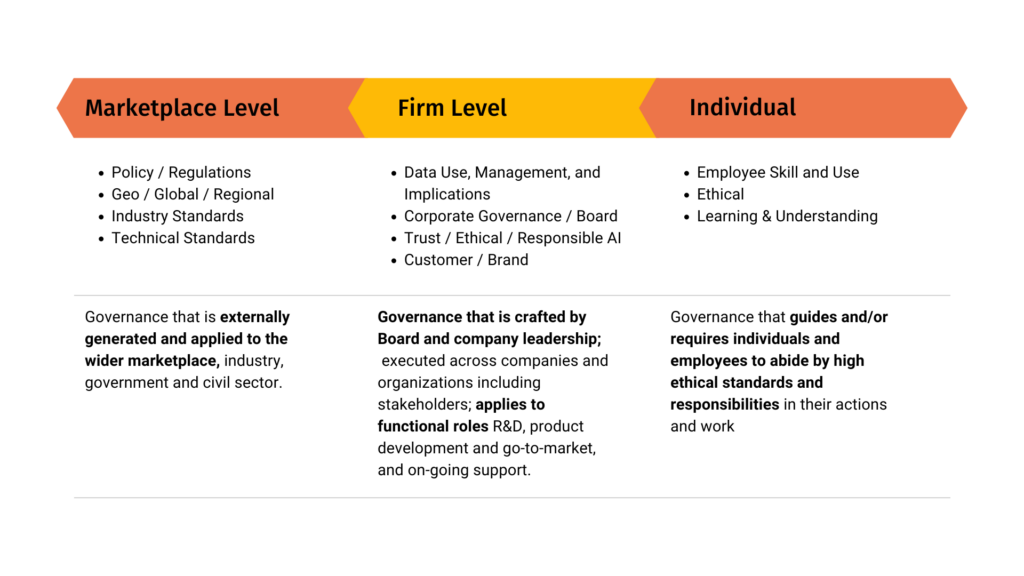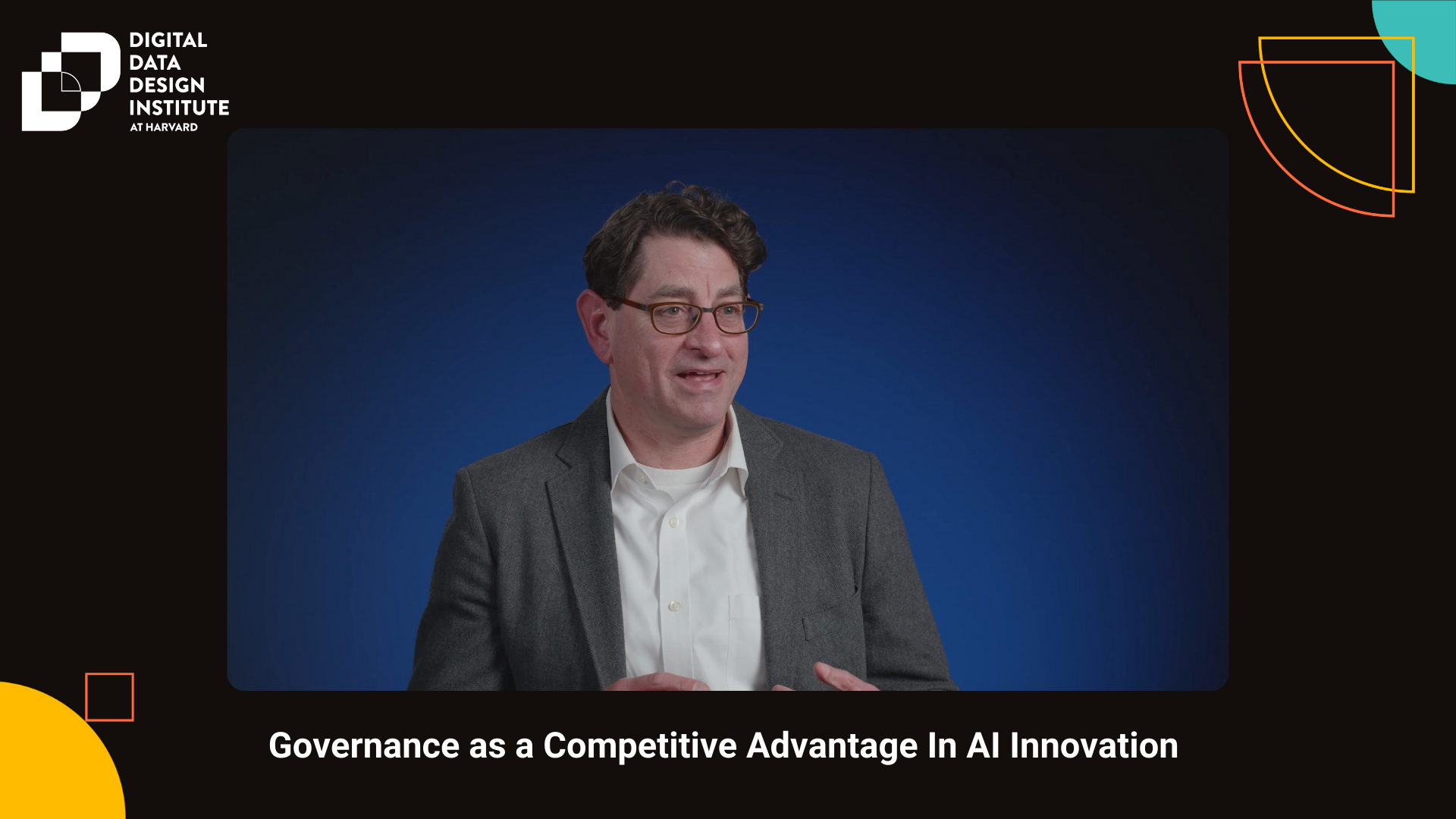We recently sat down with Stephen Goodman, Founder and Managing Director of Madrone O/A, an operational partner and advisory firm, to discuss the importance of companies utilizing frameworks for AI Governance to drive innovation. Goodman has structured and managed dozens of strategic ventures, innovative programs, and commercial partnerships with industry leaders such as Apple, Disney, Ford, Google, J & J, Microsoft, and AWS.
Goodman began the interview by sharing his views on the benefits of governance, and their essential role in fostering innovation:
How do constraints foster AI innovation in various industries,
and why are they essential for success?

Executive Insight
Goodman created several frameworks that can be used to guide companies in building governance that will drive them to establishing a competitive advantage when innovating with AI. In particular, he listed three things leaders should address when approaching governance and AI innovation.
What are the first 3 things leaders should do for governance and AI innovation?
Frameworks
Role Based Priorities

What should CEOs and company leadership be prioritizing in regard to governance and AI innovation?
Could you elaborate on your viewpoint that AI governance and ethics
should be a company-wide responsibility rather than confined to a specific group or team?
Goodman’s Three Levels of AI Governance

What are the critical realms organizations must consider
for effective AI governance, and how do they contribute to overall success?
Understanding your Business Context
Understanding your company’s context is crucial for effective AI governance – addressing these areas will make your governance relevant, robust, and adaptive.
- Can’t live in a Black Box – AI governance should not be a black box in one function or domain; it requires transparency and must be cross-functional, covering the entire AI value chain.
- Aligned with your Unique Business Model – Governance strategies need to align with the specific forms and functions of AI within your business model. Is AI a stand-alone product, embedded, a tool or platform, or internal operations? Assess where and how your AI lives within your model.
- Governance as a Portfolio – Viewing governance as a portfolio across your marketplace, firm, and employees ensures comprehensive oversight and avoids blind spots. Governance is more than compliance and needs to include policy, industry & technical standards, qualitative ethical frameworks, and employee certification.
Governance as a Competitive Advantage
In the rapidly evolving AI landscape, governance is a crucial element for achieving competitive advantage and fostering AI innovation.
- Trust = Adoption – Smart governance supports innovation by building trust and reducing risk. This fosters confidence in the reliability, safety, and ethical use of AI technologies, driving user and buyer adoption.
- Responsible Development – Thoughtful strategies and policies enable organizations to explore, take risks, develop, and bring AI innovations to market responsibly and effectively. By addressing risks like algorithmic biases and data privacy issues, governance helps avoid costly errors and ensure regulatory compliance.
- Mitigating Risks Unlocks Value – Ensuring compliance and addressing ethical concerns through clear policies and guidelines fosters stakeholder trust. This increased trust and reduced risk enable businesses to unlock new value.
- Adaptive Models – Use agile models that align with the evolving shifting nature of technology ecosystems, allowing for new business growth and opportunities. Adaptive governance provides flexibility for success, positioning organizations as responsible and ethical innovators.
How can adaptive models and approaches make governance more effective for AI innovation?
Full Interview
Meet the Speaker
Stephen Goodman works on the build, buy, and sell-side of innovation, and is an expert in commercializing innovation, digital & industrial transformation, and bringing advanced technology to market. He is grounded in go-to-market strategies and profitable growth, having held accountable top-line revenue and operational roles, guiding teams and multiple P&Ls worldwide, including Jabil, Continuum, Flex, and Sun/Oracle as well as start-ups Tulip Interfaces and Paradigm4.
Stephen advises MIT Lincoln Lab’s Technology Venture leadership and he lectures on Strategy & Operations at UC Berkeley’s Haas School of Business. He is on the Board of Cambrian AI and is a mentor at the Global Social Benefit Institute.
Disclaimer
The “Insights from the Field” initiative is a platform for guest contributors – who are industry leaders, subject-matter experts, and leading academics – to share their expert opinions and valuable perspectives on topics related to the fields of Business, Artificial Intelligence (AI), and Machine Learning (ML). Our guest contributors bring a wealth of knowledge and experiences in their respective fields, and we believe that their insights can significantly enrich our community’s understanding of the dynamic and intertwined spaces of business, technology, and society.
It’s important to note, however, that the Digital, Data, and Design (D^3) Institute does not explicitly endorse opinions expressed by our guest contributors. With this initiative, we hope to facilitate the exchange of diverse perspectives and encourage critical thinking, with an overarching goal of fostering meaningful and informed discussions on topics we consider are important to our community.
